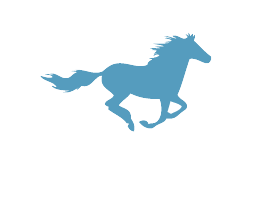Back pain
Related to pelvic asymmetry, spinal conditions such as 'kissing-spines', ill-fitting saddle, or secondary to lameness.
Tailored physiotherapy for rehabilitation and performance enhancement
Bavington Hill Head, Capheaton, Newcastle Upon Tyne, NE19 2AY
Get in touch
e-mail me
Horses, just like us, compensate for pain felt by adopting a way of moving which is less painful. Horses are masters at this, having an innate ability to mask injury stemming from the fact that they are, fundamentally, prey animals.
This can mean that some conditions are unnoticed for quite some time, long enough for changes in muscle and soft tissue to take place. If left unaddressed, these changes can become permanent and performance limiting.

Related to pelvic asymmetry, spinal conditions such as 'kissing-spines', ill-fitting saddle, or secondary to lameness.

Issues such as bucking, napping, refusing / knocking jumps and changes in temperament can often be due to an underlying musculoskeletal disorder.

Arthritis/DJD, OCD, spavin, navicular syndrome are routinely treated by veterinary surgeons. Physiotherapy is important for rehabilitation in these conditions.

Causes are numerous and should be initially investigated by a veterinary surgeon. Compensations developed by the horse due to lameness may be helped by physiotherapy.

Research is showing the value of physiotherapy modalities such as low level laser and ultrasound therapy to assist healing and minimise scarring.

Physiotherapists work closely with Master Saddlers assessing saddle fit and advising when changes are required. Resulting symptoms can often be resolved by physiotherapy.

Physiotherapy forms an integral part of the rehabilitation programme required to enable the horse to return to activity.

Physiotherapy techniques are beneficial in treating wounds sustained from direct injury, haematomas from kicks and collisions, and in reducing subsequent scar tissue.
